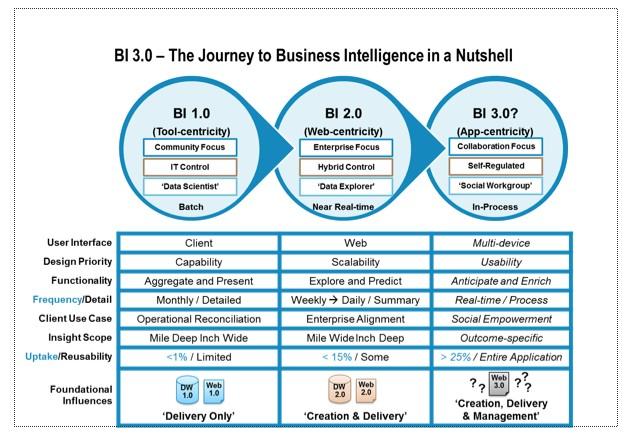If I Had a Car Accident
You are driving down the road, minding your own business, when suddenly, out of nowhere, another car slams into you. You are disoriented, scared, and unsure of what to do. If you have ever been in a car accident, you know that it can be a traumatic experience. In the aftermath of a car accident, it is important to stay calm and follow certain steps to protect your health and rights.
What to Do If You Have a Car Accident
After a car accident, it’s important to stay calm and follow these steps to protect your health and rights:
1. Stay Calm and Check for Injuries
In the immediate aftermath of a car accident, it is natural to feel shaken and disoriented. Adrenaline may be coursing through your body, and you may be experiencing pain or discomfort. The first thing you should do is to remain calm and assess the situation. Check yourself for injuries, and then check your passengers. If you or anyone else is injured, call 911 immediately. Even if you don’t feel injured, it’s important to get checked out by a doctor, as some injuries may not be immediately apparent. It’s always better to err on the side of caution.
Once you’ve checked for injuries, you should move your car to a safe location if possible. If your car is blocking traffic, turn on your hazard lights and get out of the car. Move to a safe place away from traffic. Once you’re in a safe location, you can start to gather information about the accident.
It’s important to stay calm after a car accident. This may be difficult, but it’s important to do so. If you can stay calm, you’ll be better able to think clearly and make decisions about what to do next. Staying calm will also help you to avoid making mistakes that could impact your health, your rights, and your insurance claim.
2. Call the Police
If there are any injuries or significant damage to the vehicles involved, you should call the police. The police will create a report of the accident, which can be helpful for insurance purposes and for proving fault in the event of a dispute. When you call the police, be sure to provide them with as much information as possible about the accident, including the location, time, and date of the accident, the names and contact information of the drivers involved, and the insurance information for all vehicles involved. The police will also investigate the accident and determine who was at fault.
3. Exchange Information
Once you have called the police, you should exchange information with the other driver(s) involved in the accident. This includes your name, address, phone number, insurance information, and license numbers. You should also take photos of the damage to both vehicles and write down the names and contact information of any witnesses. Don’t get into a heated argument. If you have any concerns, ask the police officer for assistance.
4. File an Insurance Claim
Once you have exchanged information with the other driver(s), you should file an insurance claim. Your insurance company will need to know the details of the accident, including the date, time, and location of the accident, the names and contact information of the drivers involved, and the insurance information for all vehicles involved. You will likely need to fill out a claim form and provide your insurance company with photos of the damage. Your insurance company will investigate the accident and determine who was at fault. If you are found to be at fault for the accident, your insurance company will pay for the damages to the other vehicle(s) and any injuries sustained by the other driver(s). If you are not found to be at fault, the other driver’s insurance company will pay for the damages and injuries. By filing an insurance claim, you will help to ensure that you are not held financially responsible for the accident.
5. Get a Medical Evaluation
Even if you don’t feel injured, it’s important to get a medical evaluation after a car accident. Some injuries may not be immediately apparent, and it’s important to rule out any serious injuries. Your doctor will perform a physical examination and may order tests to check for injuries. If you do have any injuries, your doctor will recommend a course of treatment. By getting a medical evaluation, you will help to ensure that you get the care you need to recover from your injuries.
Conclusion
A car accident can be a frightening and stressful experience. By following the steps outlined above, you can help to protect your health and rights.
If I Had a Car Accident
We’ve all been there—that sinking feeling when you realize you’ve just been in a car accident. It can be a scary and confusing experience, but it’s important to stay calm and collected. Here’s what you need to do if you’re ever in a car accident:
1. Ensure Safety
First, check yourself for injuries and move to a safe location if possible. If you’re injured, call 911 immediately. If you’re not injured, but your car is blocking traffic, move it to the side of the road if you can do so safely. Once you’re in a safe place, turn on your hazard lights and get out of your car.
2. Exchange Information
Once you’re safe, exchange information with the other driver(s) involved in the accident. This includes your name, address, phone number, insurance company, and policy number. You should also get the make, model, and license plate number of the other vehicle(s) involved. If there are any witnesses to the accident, get their names and contact information as well.
It’s important to be polite and cooperative with the other driver(s), even if you’re feeling angry or upset. Remember, you’re both in this together. The more information you can exchange, the easier it will be to file an insurance claim and get your car repaired or replaced.
If the other driver is being difficult or aggressive, don’t engage with them. Instead, call the police. They can help you exchange information and get the accident report started.
Once you have exchanged information, you can leave the scene of the accident. However, it’s important to report the accident to your insurance company as soon as possible. They will be able to help you file a claim and get your car repaired or replaced.
What Should I Do if I Had a Car Accident?
After the initial impact of a car accident, the moments that follow can be a whirlwind of confusion and fear. If you find yourself in this unfortunate situation, it’s crucial to prioritize your safety and well-being by taking the appropriate steps. Here’s a comprehensive guide that will help you navigate the immediate aftermath of a car accident and ensure the best possible outcome.
1. Ensure Your Safety
Before anything else, check to see if you’re okay and if anyone else in your vehicle needs immediate medical attention. If possible, move your vehicle to a safe location out of the flow of traffic. Turn on your hazard lights to alert other drivers and turn off the engine to prevent any further damage. Once you’re in a safe spot, gather your wits and assess the situation.
2. Call for Help
Call 911 immediately to report the accident and request medical assistance. Provide the dispatcher with your location, the number of vehicles involved, and any injuries sustained. If you’re unable to contact emergency services, ask a bystander to do it for you. It’s essential to have the authorities on the scene as soon as possible to document the incident and ensure the safety of everyone involved.
3. Exchange Information
Once the police arrive, cooperate fully with them and provide them with all the necessary details. Exchange information with the other driver(s) involved, including names, addresses, phone numbers, insurance companies, and policy numbers. It’s also important to note the make, model, and license plate numbers of all the vehicles involved in the accident. Take photos of the damage to your vehicle and the other cars to document the extent of the damage.
4. Seek Medical Attention
Whether you feel injured or not, it’s crucial to seek medical attention as soon as possible. Some injuries, such as whiplash, may not manifest until hours or even days after the accident. By getting a thorough checkup, you can ensure that any injuries are diagnosed and treated promptly. Remember, your health is a top priority, and ignoring potential injuries can have long-term consequences.
5. Contact Your Insurance Company
After taking care of your immediate needs, contact your insurance company to report the accident. Provide them with all the details, including the police report number and the other driver’s information. Your insurance company will guide you through the claims process and help you get your vehicle repaired or replaced if necessary.
If I Had a Car Accident: A Comprehensive Guide to Managing the Aftermath
After the initial shock of a car accident subsides, it’s imperative to act swiftly and decisively to protect your well-being and rights. This guide will provide a comprehensive roadmap to navigate the aftermath of a car accident, addressing crucial steps you need to take to ensure your safety and safeguard your interests:
1. Stay Calm and Ensure Safety
Even in the face of a heart-pounding accident, maintaining composure is essential. Take a moment to gather your wits and assess the situation. Ensure your well-being and that of any passengers. If possible, pull over to a safe location, activate your hazard lights, and call 911 to report the accident.
2. Document the Scene
Creating a thorough record of the accident will be invaluable down the road. Take photos of the accident scene, including damage to vehicles, skid marks, and any visible injuries. Exchange contact, insurance, and driver’s license information with the other driver(s) involved. Jot down the names and contact details of any witnesses who may have seen the accident unfold.
3. Seek Medical Attention
Even if you don’t feel injured initially, it’s crucial to seek medical attention as soon as possible. Some injuries, such as whiplash, may not manifest themselves right away. A thorough medical examination will ensure your well-being and provide documentation of any injuries for insurance purposes.
4. Report the Accident to Your Insurance Company
Promptly notify your insurance company about the accident. Provide them with a detailed account of what happened, including the date, time, location, and other driver’s information. Cooperate fully with the insurance company’s investigation and provide any requested documentation or statements. Failure to report the accident in a timely manner could jeopardize your insurance coverage.
5. Contact a Lawyer if Necessary
In some cases, it may be in your best interests to consult with an experienced car accident lawyer. They can provide legal guidance, help you navigate the insurance claim process, and protect your rights in the event of a dispute. Consider seeking legal representation if the accident resulted in significant injuries, property damage, or if there are any complex legal issues involved.
6. Take Care of Yourself
After a car accident, it’s not uncommon to experience physical and emotional distress. Take time to rest and recover from your injuries. Engage in activities that promote relaxation and well-being, such as yoga, meditation, or spending time in nature. Seeking support from friends, family, or a therapist can also be beneficial in managing the emotional aftermath of the accident.
If I Had a Car Accident
After a car accident, your mind may be racing, and it can be tough to think straight. However, there are a few things you should do to protect yourself and your interests. Here’s what you should do if you’re involved in a car accident.
1. Stay Calm and Check for Injuries
First and foremost, stay calm and check for injuries. If you’re injured, don’t move unless you absolutely have to. Call 911 immediately and wait for help to arrive. If you’re able to move, get out of the car and check on the other passengers. Once you’re sure everyone is safe, you can start to assess the damage and exchange information with the other drivers involved.
2. Call the Police
Even if the accident is minor, it’s important to call the police. They will create an accident report that can be used as evidence if you need to file a claim with your insurance company or take legal action later on. The police report will also contain information about the other driver, such as their name, address, and insurance information.
3. Exchange Information
Once you’ve called the police, exchange information with the other drivers involved in the accident. This includes your name, address, phone number, insurance information, and license plate number. You should also get the names and contact information of any witnesses who saw the accident.
4. Document the Scene
Take photos of the accident scene, any damage to vehicles, and any visible injuries. These photos can be used as evidence later on if you need to file a claim with your insurance company or take legal action. You should also write down a brief description of the accident, including the date, time, and location. If there are any skid marks or other evidence that could help to determine who was at fault, be sure to take photos of those as well.
5. Seek Medical Attention
Even if you don’t feel injured, it’s important to seek medical attention after a car accident. Some injuries, such as whiplash, may not be immediately apparent. By getting checked out by a doctor, you can rule out any serious injuries and get the treatment you need to recover from your injuries.
If I Had a Car Accident: Know What to Do
Being involved in a car accident can be a frightening and stressful experience. In the immediate aftermath, it’s natural to feel overwhelmed and unsure of what to do. However, taking the right steps can help protect your health, your legal rights, and your peace of mind.
Here’s a comprehensive guide to help you navigate the aftermath of a car accident:
1. Stay Calm and Ensure Safety
It’s crucial to stay calm and assess the situation. Check yourself and your passengers for any injuries. If you’re able, move your vehicle to a safe location out of traffic. Turn on your hazard lights to alert other drivers.
2. Call 911
Always call 911, even if you don’t believe anyone is seriously injured. The police will create an accident report, which is essential for insurance claims and legal purposes. They will also provide assistance with medical care and traffic control.
3. Exchange Information
Exchange the following information with the other driver(s) involved in the accident:
4. Take Photos and Document the Scene
Take pictures of the accident scene, including the damage to the vehicles, the location, and any visible injuries. Note down any important details, such as road conditions, weather, and the actions of the other drivers.
5. Seek Medical Attention
Even if you feel fine, seek medical attention to rule out any hidden injuries. Some injuries, such as whiplash or concussions, may not show symptoms immediately. Getting checked out by a doctor will ensure that you receive the necessary care and documentation for your medical records.
6. Contact Your Insurance Company
Promptly report the accident to your insurance company and provide them with all the details you have gathered. They will guide you through the claims process and help you get your vehicle repaired or replaced. Don’t sign any documents or agree to any settlements without first consulting with your insurance company and an attorney, if necessary.
7. Hire an Attorney (Optional)
If you have sustained significant injuries or if there is a dispute about who is at fault, it may be wise to hire an attorney. They can represent your interests, negotiate with the insurance companies, and help you recover fair compensation for your damages.
8. Follow Up
After the accident, follow up with your doctor for your recovery and treatment. Stay in touch with your insurance company to track the progress of your claim. If you have any questions or concerns, don’t hesitate to reach out to them for assistance.
If I Had a Car Accident
Getting into a car accident can be a bewildering experience. If you find yourself in this unfortunate situation, it’s crucial to know what steps to take to ensure your safety and protect your legal rights. Here’s a comprehensive guide to navigate the aftermath of a car accident, starting with the immediate aftermath and extending to the legal and insurance aspects.
6. Report the Accident
After gathering vital information and seeking medical attention if necessary, the next crucial step is to report the accident to your insurance company and the relevant authorities within the prescribed time frame. Promptly reporting the accident ensures that your insurance coverage remains valid and that you meet any legal obligations. Failure to report the accident within the stipulated period could jeopardize your claim.
7. Filing a Police Report
In most cases, it’s highly advisable to file a police report, especially if there are injuries, significant property damage, or disputes about fault. The police report will provide an official account of the accident, including details about the vehicles involved, the drivers, and any witnesses. It’s important to be accurate and thorough when providing your account to the police officer. If possible, take photographs of the accident scene, including damage to vehicles and any visible injuries. This documentation will serve as valuable evidence in case of any disputes or legal proceedings.
If I Had a Car Accident: A Comprehensive Guide
If you’re reading this article, chances are you’ve experienced the misfortune of being involved in a car accident. While it can be a stressful and overwhelming time, it’s essential to stay composed and take the necessary steps to protect your health, safety, and legal rights. This comprehensive guide will walk you through everything you need to know in the aftermath of a car accident.
1. Stay Calm and Check for Injuries
First and foremost, it’s crucial to stay calm and check for any injuries. This includes both yourself and any passengers in your vehicle. If you or anyone else is hurt, call for emergency medical assistance immediately.
2. Report the Accident to the Police
Next, you should report the accident to the police. This is especially important in cases where there is property damage or injuries. The police will file a report that will document the details of the accident, including the date, time, location, and any witnesses.
3. Gather Evidence and Information
While waiting for the police to arrive, it’s helpful to gather as much evidence and information as possible. This includes:
- Taking pictures of the accident scene
- Noting the license plate numbers of the vehicles involved
- Getting the names and contact information of any witnesses
- Recording the date, time, and location of the accident
4. Exchange Information with the Other Driver(s)
Once the police arrive, you should exchange information with the other driver(s) involved in the accident. This includes:
- Name
- Address
- Phone number
- Insurance company and policy number
- License plate number
- Make and model of the vehicle
5. See a Doctor, Even if You Feel Fine
Even if you don’t feel any pain immediately after the accident, it’s vital to see a doctor as soon as possible. Some injuries, like whiplash, may not manifest themselves for several hours or days. A doctor can examine you for any hidden injuries and provide the necessary treatment.
6. Notify Your Insurance Company
You should also notify your insurance company about the accident as soon as possible. They will need to be informed about the details of the accident and the damage to your vehicle. Your insurance company will assign an adjuster to handle your claim and help you get your vehicle repaired or replaced.
7. Contact an Attorney (Optional)
If you believe you have sustained significant injuries or the other driver is at fault, consider consulting an attorney. An attorney can help you navigate the insurance process, file a personal injury lawsuit, and recover compensation for your injuries and other damages.
8. Follow Up with the Police Report and Your Insurance Company
Once you’ve reported the accident to the police and notified your insurance company, you should follow up with them regularly. Check in with the police to see if the accident report is complete and available. Contact your insurance company to track the progress of your claim and ensure your vehicle is being repaired or replaced in a timely manner.
Conclusion
Getting into a car accident is an unsettling experience, but staying calm and taking the necessary steps can help you protect your health, safety, and legal rights. By following the guidelines outlined in this article, you can navigate the aftermath of an accident with confidence and minimize the stress and hassle involved.
If I Had a Car Accident
When you’re in a car accident, it can be a scary and confusing experience. You may be injured, your car may be damaged, and you may not know what to do next. Here are some steps to follow if you’ve been in a car accident:
1. Stay Calm and Assess the Situation
First and foremost, it’s important to stay calm. Take a few deep breaths and assess the situation. Are you injured? Is anyone else injured? Is your car drivable? If you’re able to, pull over to the side of the road and turn on your hazard lights.
2. Call 911
If you or anyone else is injured, call 911 immediately. Even if the injuries seem minor, it’s important to get medical attention as soon as possible.
3. Exchange Information
Once you’ve called 911, exchange information with the other driver(s) involved in the accident. This includes your name, address, phone number, insurance information, and license plate numbers.
4. Take Photos
If you’re able to, take pictures of the accident scene. This will help to document the damage and provide evidence for your insurance claim.
5. Get a Police Report
In most cases, you’ll need to file a police report after a car accident. The police report will provide an official record of what happened.
6. Contact Your Insurance Company
As soon as possible after the accident, contact your insurance company to report the claim. They will be able to help you file a claim and get your car repaired or replaced.
7. See a Doctor
Even if you don’t feel injured, it’s important to see a doctor after a car accident. Some injuries, such as whiplash, may not show up immediately.
8. Protect Your Rights
Do not admit fault, sign any documents, or accept any settlement offers without consulting with an attorney. An attorney can help you protect your rights and get you the compensation you deserve.
9. Seek Professional Help
If the accident leaves you with physical or emotional injuries, seek professional help. Physical injuries can be treated with medication, physical therapy, and chiropractic care. Lawyers can help cover the costs of the injuries or recovery. In the meantime, emotional trauma from a car accident can be anxiety-inducing and may require the care of a mental health expert. Even having a team of medical doctors and lawyers, it is possible to feel isolated or alone in your recovery. Talking to trusted loved ones or friends can also help you recover. As you tell your story, you may discover that people you know have experienced something similar and may be able to offer you support.
10. Take Care of Yourself
After a car accident, it’s important to take care of yourself. This means getting enough rest, eating healthy foods, and exercising regularly. It’s also important to avoid alcohol and drugs.




Leave a Reply